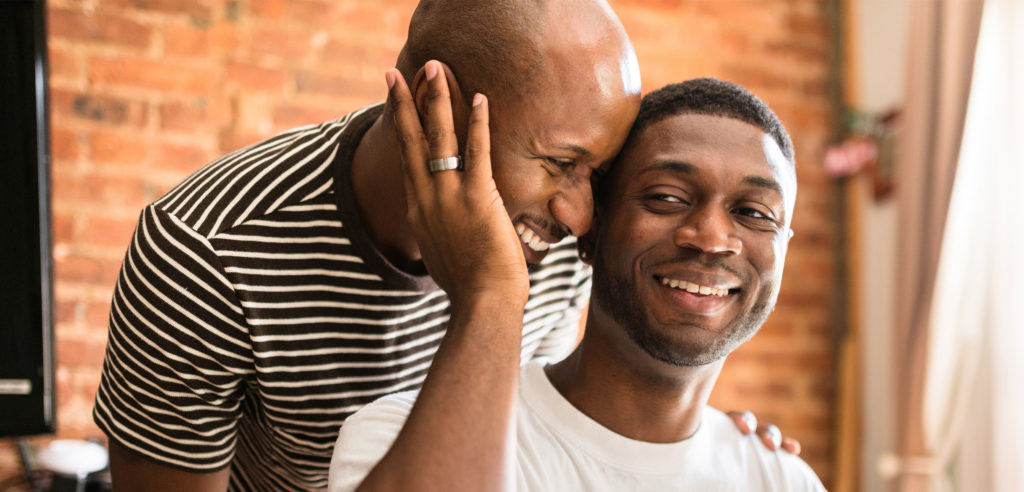Today, the Ohio Senate Committee on Health, Human Services, and Medicaid is holding a second hearing on SCR 14, which will designate racism as a public health crisis. We submitted written testimony in support of the resolution, and you can read it here:
Chair Burke, Vice Chair Huffman, Ranking Member Antonio, and distinguished members of the Ohio Senate Health, Human Services, and Medicaid Committee, thank you for the opportunity to provide testimony in support of Ohio Senate Concurrent Resolution 14, which will formally declare a fact that we all know to be true: Racism is a public health crisis.
My name is Alana Jochum, and I am the Executive Director of Equality Ohio, our state’s LGBTQ advocacy organization. I write to you today to share with you some of the impacts racism has had on the LGBTQ community here in Ohio and to implore you to help us, along with the hundreds of dedicated Ohioans who have spoken to you, make our state a safer, more equal place to live, work, and play for all.
Equality Ohio stands unequivocally in solidarity with the Movement for Black Lives and the thousands of protestors demanding an end to police violence against Black Americans. The public health crisis this resolution seeks to address is not one that started with the recent murders of George Floyd and Breonna Taylor, nor did it start with the killings of Tamir Rice or Trayvon Martin. This crisis began over 500 years ago with the beginning of the trans-atlantic slave trade and has evolved to manifest itself today as mass incarceration, over policing, police brutality, disproportionate negative health outcomes, and discrimination, just to name a few.
Typically, June is a month of celebration and remembrance for the LGBTQ community through Pride Month, but the pandemic has caused us to pause and postpone the celebrations of Pride. We are instead joining uprisings around the state that are bringing visibility to the state sanctioned violence against people of color, particularly Black men and women, and demanding an end to the violence.
Indeed, LGBTQ people of color live at the intersection of two highly marginalized identities. Of the estimated 585,700 LGBTQ people who call Ohio home, about 30% are also people of color generally, and 13% are Black. In a national survey, 29% of transgender Americans lived below the federal poverty line, and that number dramatically increased for transgender people of color with 43% of Latinx transgender people, 40% of multi-racial transgender people, and 38% of Black transgender people living in poverty.
Transgender people of color are among the most marginalized in our society. They experience racism, sexism, and transphobia—and often they experience all three at once. Last year, at least 26 transgender people of color were murdered. With the killings of Riah Milton in Southwest Ohio and Akron LGBTQ community member Brian Powers in early June, that number is already at 17 in 2020. We also know that these numbers are low estimates because the killings of transgender people of color often go unreported, and many transgender people cannot live publicly as their full selves, for fear of discrimination and violence.
As many LGBTQ leaders and community members watch and participate in the demonstrations of recent weeks, we are reminded of the Stonewall Riots of 1969, which are often cited as the beginning of the modern LGBTQ movement, even though transgender women of color were rising up against police brutality even earlier than Stonewall. What is too often forgotten is the fact that what happened at Stonewall was a riot against police brutality by two transgender women of color, Sylvia Rivera and Marsha P. Johnson. Had those two brave women not stood up against racist, anti-LGBTQ violence by police in New York City, the movement for LGBTQ equality might look very different than what it does today.
These demonstrations also remind us in the LGBTQ community here in Columbus of a not-so-distant-event in our local history. Three years ago, at Columbus Pride, four Black LGBTQ leaders in our community were assaulted by police in the middle of the march route. They were peacefully asking for a moment of silence to remember the killing of Philando Castille by police in Minnesota, and the subsequent acquittal of the officer who murdered him.
This event and its aftermath brought to light the racism that continues to exist within the LGBTQ community and shows that being a member of one marginalized community does not exempt white LGBTQ people from the privilege that accompanies being white. Since the 2017 Columbus Pride, our organization has worked extensively to make anti-racism a key component of our work and to integrate into our regular operations. In fact, we are about to unveil our new strategic framework, which provides detailed ways in which we are working to incorporate and prioritize anti-racism into the fabric of our organization.
I share this because SCR 14 can serve the same purpose for the Ohio Legislature as our new strategic framework serves for us. Both are written values statements that allow us to hold ourselves accountable and for others to hold us accountable to our goal of combatting institutionalized racism within our organizations. It is not enough to say that racism is bad. We must ensure that our actions reflect our shared goal of ending racism, but our actions need guides. SCR 14 will act as one such guide for our elected leaders making policy decisions.
This resolution will not fix these systemic, generations-old problems. No single piece of legislation can. But what it will do is provide a framework for current and future legislators to understand the impacts of racism on public health and better analyze the impact public policy has on communities of color, here in Ohio.
Combatting racism in all its manifestations—whether that be in the LGBTQ community, in the police force, or at the Statehouse—cannot simply be the responsibility of the brave activists in the streets or the organizations seeking racial justice within these walls. Anti-racism has to be embedded into our lives, our laws, and our institutions, and SCR 14 puts us on the path to doing that here in Ohio. We strongly urge passage of SCR 14, and I am eager to answer any questions you may have via email.
Alana Jochum, Esq.
Executive Director, Equality Ohio




 @
@